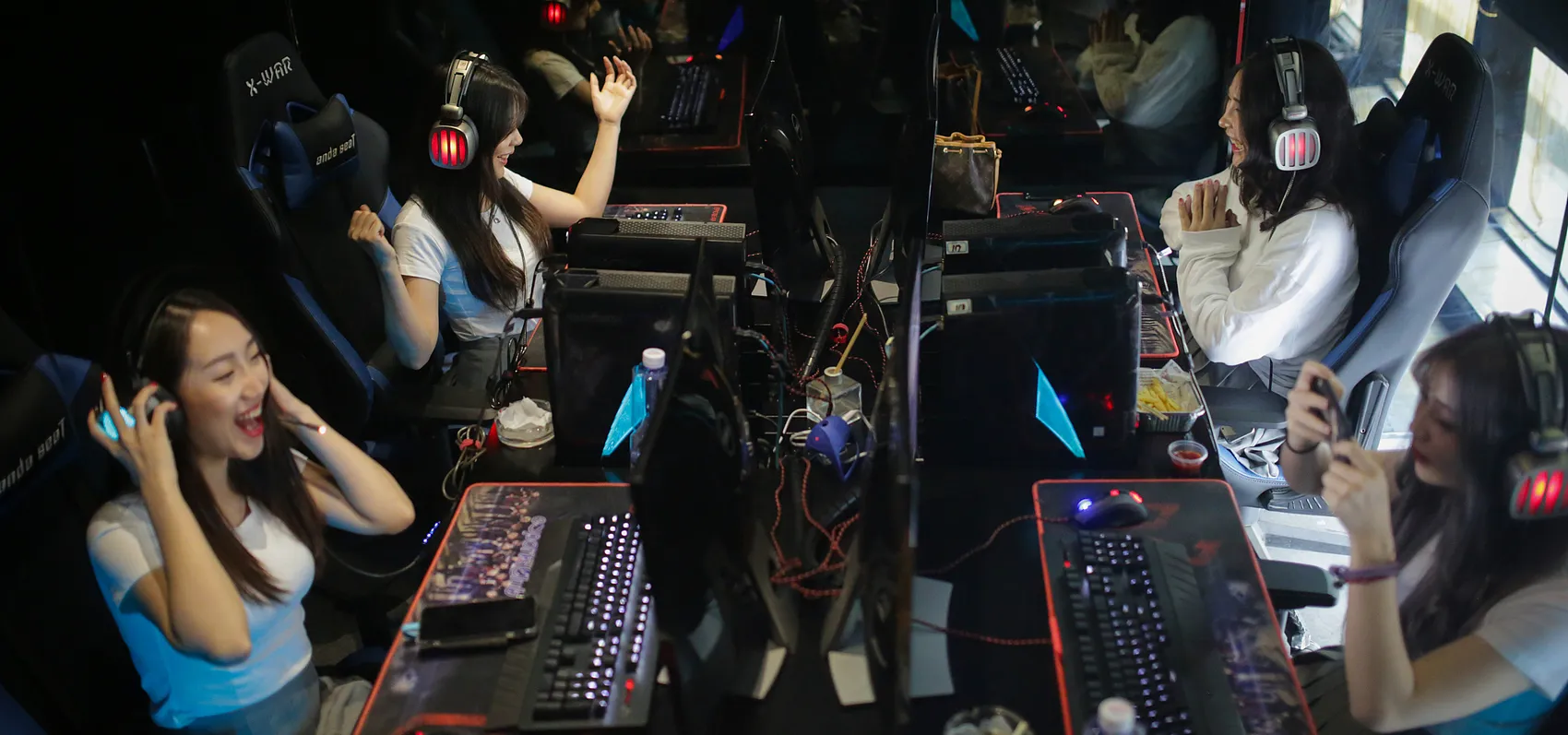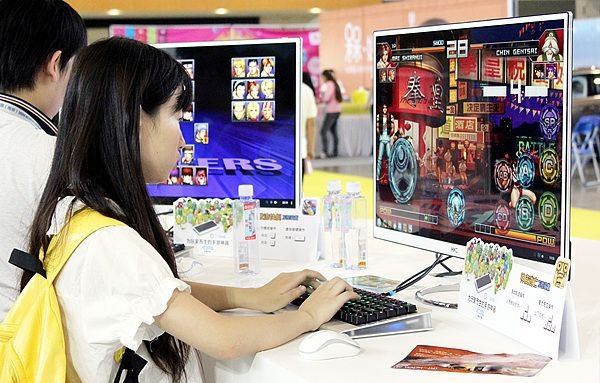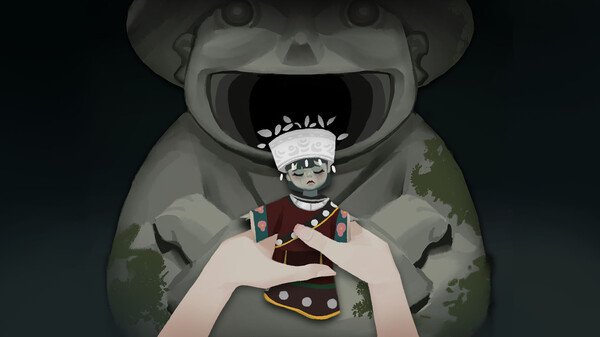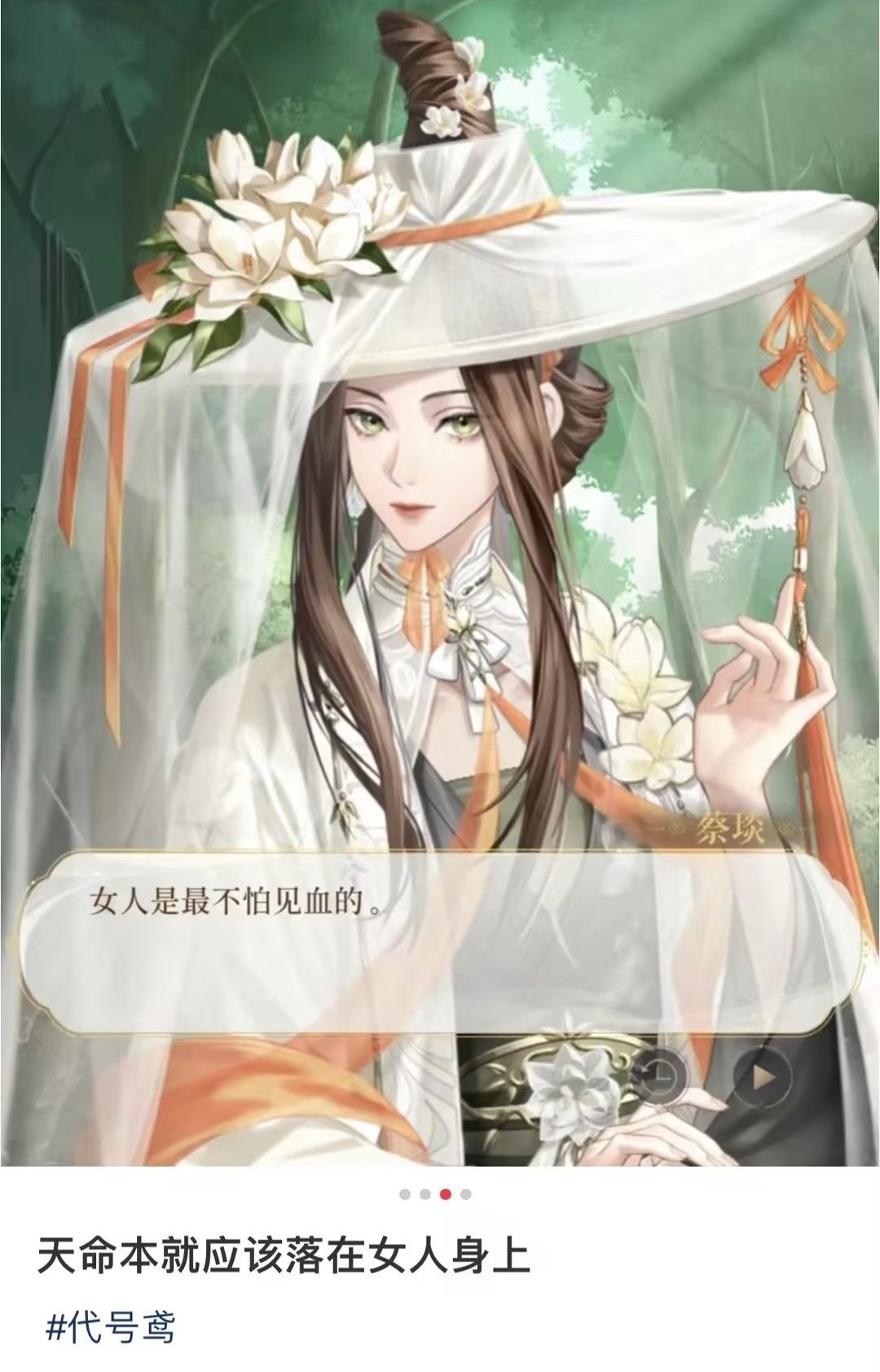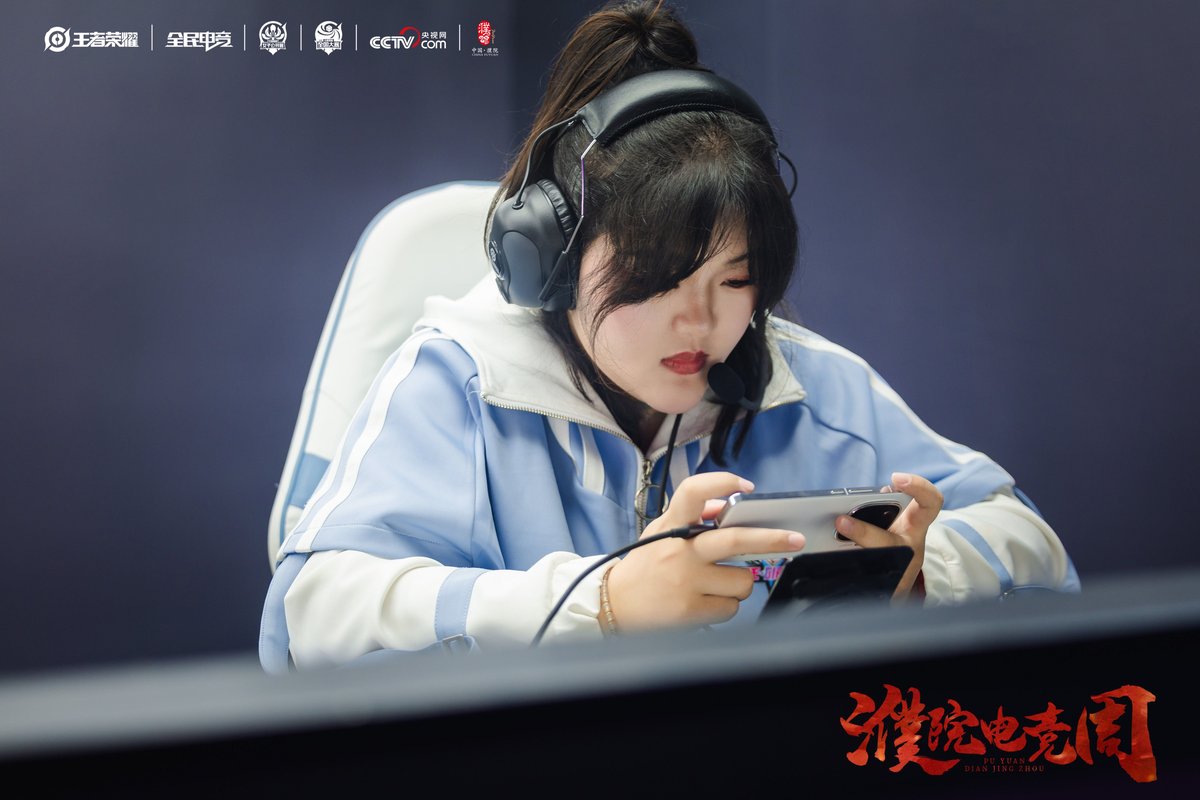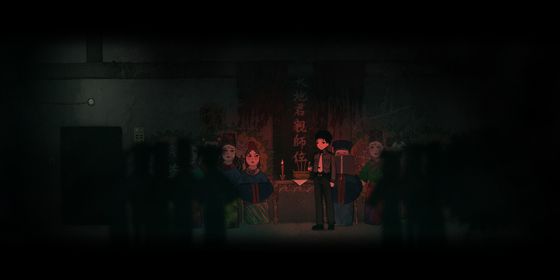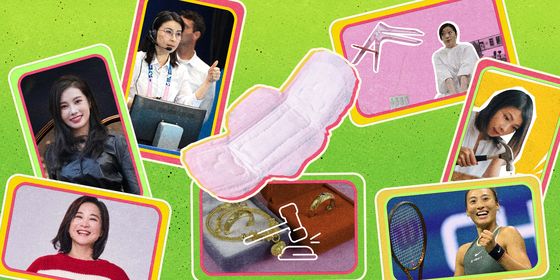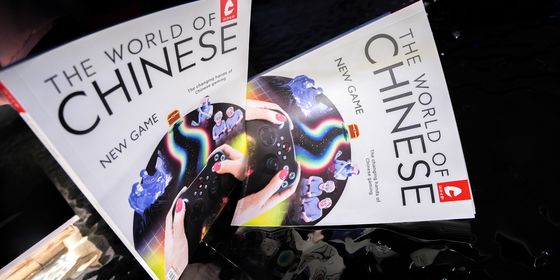Although women account for almost half of all gamers in China, sexism is still rampant in China’s gaming scene
“No way...you must be a guy!“
When Shen Yue read this comment from a male teammate, her excitement at racking up the most kills in the shooting game Valorant quickly evaporated.
Once he was finally convinced she was female, the teammate went on to scrutinize every detail of Shen’s gameplay—her movements, her posture, her achievements. “It was like he didn’t believe that female gamers could play like this,” recalls the 22-year-old from Chongqing, who asked to use a pseudonym for this piece. “I thought it was crazy, like I made the most kills, and you’re still doubting me?”
Although women make up nearly half of China’s over 650 million gamers, Shen’s experience is far from unique. Female gamers routinely experience sexual harassment, cyberbullying, and skepticism about their abilities, while the gaming industry has also been criticized for failing to provide a safe and inclusive environment for both female players and female employees. In August, excitement over the blockbuster AAA game Black Myth: Wukong was slightly dampened after misogynistic and sexualized comments by the studio’s co-founder were leaked on social media. Among other offensive remarks, he suggested that video games should cater primarily to male players, claiming that “men dream of action and guns while women dream of handbags.”
In this hostile environment, many female gamers choose to use male aliases, keep a low profile online, or even stop playing altogether. However, some have taken the opposite approach: stepping into the spotlight through esports, forming all-female teams, and building female-centric gaming communities to shed light on the challenges they face.
Read more about gaming culture in China:
- Grinding for Gold: Inside China’s Game Boosting Economy
- Little Tyrants: A Brief History of Chinese Video Game Consoles
- What Video Games (Don’t) Teach Us About China
One such online community, founded in 2020 on the social media platform Douban, consists of over 47,000 members. There, female gamers not only discuss the games they like and strategies they’ve found helpful, but share the disparaging remarks they’ve received, like, “Ugh, another female player. You all suck”; and unsolicited offers like, “Girl, I’ll help you play. Let’s add each other as friends.” In 2021, the group’s founder, Tuotuo, told tech media outlet 36kr that female gamers aren’t much different from male players in terms of what they like to discuss online; however, they lack a friendlier internet forum where they won’t be doubted or harassed because of their gender.
Hate vs. condescension
Amy Wu still feels rankled over an incident in 2021, when her teammates blamed her for their bad performance in the popular MOBA (multiplayer online battle arena) game Honor of Kings. Though she landed all her skills and maximized damages, her “cute” ID name triggered insults like “female players suck” almost every time she played. “Everyone makes mistakes. It’s unreasonable to blame any one person for a loss,” Wu complains. “They just want to shift blame onto someone who is easier to pick on, like a support player or worse, a female player.”
The 23-year-old from Jiangsu province has since changed her username to a more gender-neutral one. She still got blamed occasionally when she played support, but “less often now,” Wu shares with TWOC.
Efforts to “include” female players can sometimes end up being discriminatory. Shui Xianshu, a player who created a male username to avoid harassment, was once berated by a male teammate for playing poorly in a game. But when the male player heard her voice and realized her gender, “He quickly apologized and even asked me how long I had been playing, trying to show he understands that it’s normal for a newbie to struggle,” says Shui, who wishes he had treated her like any male player—even if that meant continuing to criticize her.
“Some might say, ‘He’s so nice to you, why nitpick?’” says Shui. “But...like everyone else, I care about achievements.”
A 2019 paper by postgraduate Ru Mengran from Yunnan University on female players of MOBA games highlighted that female gamers are often seen as kind, gentle, and lovable, but also as ”noobs” and ”scrubs” who need guidance from more experienced (male) players. Most male interviewees acknowledged that some female players have high skill levels, but they generally believe that male players outperform their female counterparts, whether on average or among the top players. If a female player excels, she may be labeled as “playing like a man.” Among the gamers TWOC spoke to, some shared that they had been asked if they had “boyfriends playing on [their] behalf” when they outperformed male players.
These struggles are not unique to China: In 2021, a study by Lenovo and market research consultancy Reach3 Insights found that 77 percent of 900 women surveyed in the US, Germany, and China had experienced gender-specific discrimination while gaming. There have been efforts to combat these issues. The global non-profit organization Women in Games has provided online support, organized international conferences, shared relevant books and academic research, and even recruited volunteers to help raise awareness and support for women in gaming since 2009. Riot Games, developer of Valorant, implemented behavioral detection in its in-game chat features last May. In addition to allowing players to mute a teammate, text recognition features in 11 languages helped report and censor offensive remarks. Penalties for harassment include chat bans, extended queue times, queue bans, and game bans. But these measures have failed to bring about meaningful change to the broader environment.
A male-dominated industry
Offline, the gaming industry remains male-dominated, and gender biases are rampant despite the increasing presence of female employees. According to business review platform 20-First, 84 percent of executive positions in the top 14 global gaming companies, including Google, Ubisoft, and NetEase, are held by men. Outside of the executive ranks, only 30 percent of developers in the industry are women, and 8 percent are nonbinary in 2021, according to data from global business intelligence platform Statista.
In China, according to a 2018 report from the data analytics site Gamma Data, females made up only 27 percent of the industry’s workforce, marking a less-than-2-percent increase from the previous year.
Female workers have long been grappling with misconduct and mistreatment in the industry. In the comments under a video on the streaming platform Bilibili discussing the issue, a former game designer recounted how other lead artists in her company, who were all male, passed on their own projects to her because they pigeonholed her style as “warm and sweet.” She also once took an animation course with a teacher who insisted that “female characters’ movements must be flirtatious.” Female employees in the game industry “truly have a glass ceiling above them, and one day that ceiling will inevitably come crashing down on me, regardless of my abilities,” the designer wrote.
Shen, a former community manager for a gaming company, has also faced misogyny at work. “[The players] think any flaws in the game must be the fault of female employees,” Shen says, recalling insulting comments from players who disliked the storyline for a shooting game she once promoted.
Shen left the company earlier this year due to excessive overtime and a toxic workplace culture, which included creating games with scantily clad female characters. Things aren’t much different, though, at other companies. She interviewed with six companies this June, and about 80 percent of the interviewers were male, who kept questioning her gaming experience.
“I listed some games I enjoyed and mentioned my thousands of hours on Steam, but they were skeptical. They demanded, ‘Do you really play this game?’ as if I made it up, as if a girl couldn’t possibly play those games,” says Shen, who claims the interviewer treated another male candidate differently.
She was later rejected for a job, allegedly due to a lack of gaming experience. “The HR staff acknowledged my language skills and work capabilities, yet I couldn’t understand why the interviewer was so critical of my gaming experience,” says Shen. “Those games aren’t meant only for guys. It felt like he didn’t believe I had played games like Resident Evil.”
In-game representation
So-called “female-centric games”—games marketed toward women, which often focus on relationships, fashion, and running restaurants—can also reinforce stereotypes about the capabilities and interests of female gamers.
In recent years, the female-oriented gaming market has been dominated by otome games like Love and Producer, which feature a female protagonist and many male love interests. Gamers, though, are seeking more options beyond romance. Ashes of the Kingdom, a strategy card game set in China’s Three Kingdom period (220 – 280), became a hit on Chinese social media when it was released domestically in September. Its producer Xiao Meng, a woman herself, said in an interview with Oriental Outlook magazine that she was inspired by other female gamers, and wanted to give them a greater variety of emotional experiences in games beyond just romance.
According to Shen, the lack of products that truly represent female gamers’ experiences creates a vicious cycle, leading fewer girls to be interested in games and reinforcing the idea that they are not suited for gaming. “There is a stereotypical belief that boys love video games while girls prefer playing with dolls, resulting in girls having fewer opportunities than boys to engage with games from a young age,” Shen explains to TWOC.
It wasn’t until her college years that Shen started exploring various games, including horror adventure Resident Evil, Western-themed Red Dead Redemption, and fantasy Elden Ring. She discovered that gaming came easily to her. “I realized that I could enjoy gaming too, and that many games are suitable for girls,” she says. “Initially, they seemed tough, but...I just need the time to get to get familiar with the gameplay.”
Though the representation of female characters in games has increased in recent years, players feel the hyper-sexualized depiction of women fosters more sexism and misogyny. One Hundred Scenes of Jiangnan, a roleplaying adventure released in 2020, ignited complaints among female gamers for its stereotypical portrayal of female characters. In particular, the Chinese folk tale heroine Zhu Yingtai was depicted as a timid wallflower lacking talent, rather than the intelligent, independent woman seeking education alongside her male peers.
In recent years, some female producers of successful games like Bride into the Cave (2024) and Ghost Story (2016) have tried to use their platforms to inspire more women to play and to work in the industry. Ghost Story producer Xiao Ting, whose game boasts a 60 percent female cast, highlighted the contribution of her all-female team to the newspaper Game Daily: “I’m not saying that only women can develop games that women enjoy, but it’s clear that women have a natural advantage in understanding the needs of other women,” she said, citing her game’s focus on emotional rewards.
“Esports doesn’t believe in women?”
With misogyny prevalent in the male-dominated gaming world, female gamers are turning to alternative ways to explore their hobby and showcase their skills.
After getting skeptical comments under her gaming tutorial videos on Douyin, China’s version of TikTok, Liu Anqi set her mind on breaking into China’s Top 50 players of Honor of Kings. “I thought that if I just played harder, people would recognize my skills,” says the 23-year-old from Shandong province in eastern China.
Yet her achievement only led to more vitriolic comments, this time accusing her of cheating. “They said, ‘She must be rich to hire someone else to play for her.’ They wouldn’t accept that I was just putting in the hard work,” Liu tells TWOC.
Desperate to prove herself, Liu took a sabbatical from college to play esports professionally, and clinched the championship of Honor of Kings Regional Tournaments with her all-female team in 2022. Even then, audience comments focused more on the team’s appearances than their abilities, and said that their victory simply proved that “anyone could win.”
The esports industry has been actively promoting events for female players in recent years. Games like Honor of Kings, Valorant, Hearthstone, Identity V, and Teamfight Tactics have launched women’s professional tournaments or mixed-gendered events, encouraging more female players to participate. Tencent Esports also launched the reality show Carry You, in 2019, aiming to help over 40 female gamers become esports athletes.
Still, female esports players like Liu face systematic challenges like a lack of access to professional coaching and funding, which leaves them struggling to achieve the same level of success and experience as their male counterparts. In October of last year, a viral WeChat post titled “Esports Doesn’t Believe in Women” revealed that even elite players like Jiang Yuke (Tiantianke), a member of the all-female club RE-Girls who won the first-ever Honor of Kings Women’s Open championship in 2021, still lack training and competition opportunities.
To practice with more experienced teams, Liu’s team created burner accounts posing as male players online. Male teams have declined to practice with them because of their gender. “They prefer to trust an inexperienced male player [to practice against] over a qualified female like me,” Liu says.
A 2021 article from tech and business website TMT Post, titled “The Survival Guide for Chinese Female Esports Players,” highlighted disparities in selection criteria between male and female teams. While male teams are evaluated solely on gaming skills, female players are subjected to additional requirements, including photos and body measurements, fostering the perception that women’s esports teams are merely “beauty teams.”
Liu also points out that the lower prize pools for female competitions make it difficult for them to attract top-level coaching. In mixed-gender tournaments (which are often male-dominated), winners can earn as much as 10 million yuan, while winners of female-only competitions typically receive prizes capped at around 1 million.
Over the past four years, Liu and her teammates had only one major annual tournament in the game Honor of Kings to compete in, whereas male players could participate in various regional tournaments and commercial competitions throughout the year. “It feels like, if I win, then what?...Even success doesn’t open doors to any new opportunities,” she says. “The cycle doesn’t lead to any breakthroughs.”
With her team’s practices currently on hold, Liu runs a mix-gendered online gaming club, where she acts as a “sparring partner” helping other gamers practice. It’s a way of staying connected to the industry, but she is unsure about her future in esports. “I could pursue other jobs, but I feel a strong attachment to this field,” she says. “I believe there is still a place for me.”
Leveling the Playing Field: China’s Female Gamers Struggle for Recognition is a story from our issue, “New Game.” To read the entire issue, become a subscriber and receive the full magazine.





